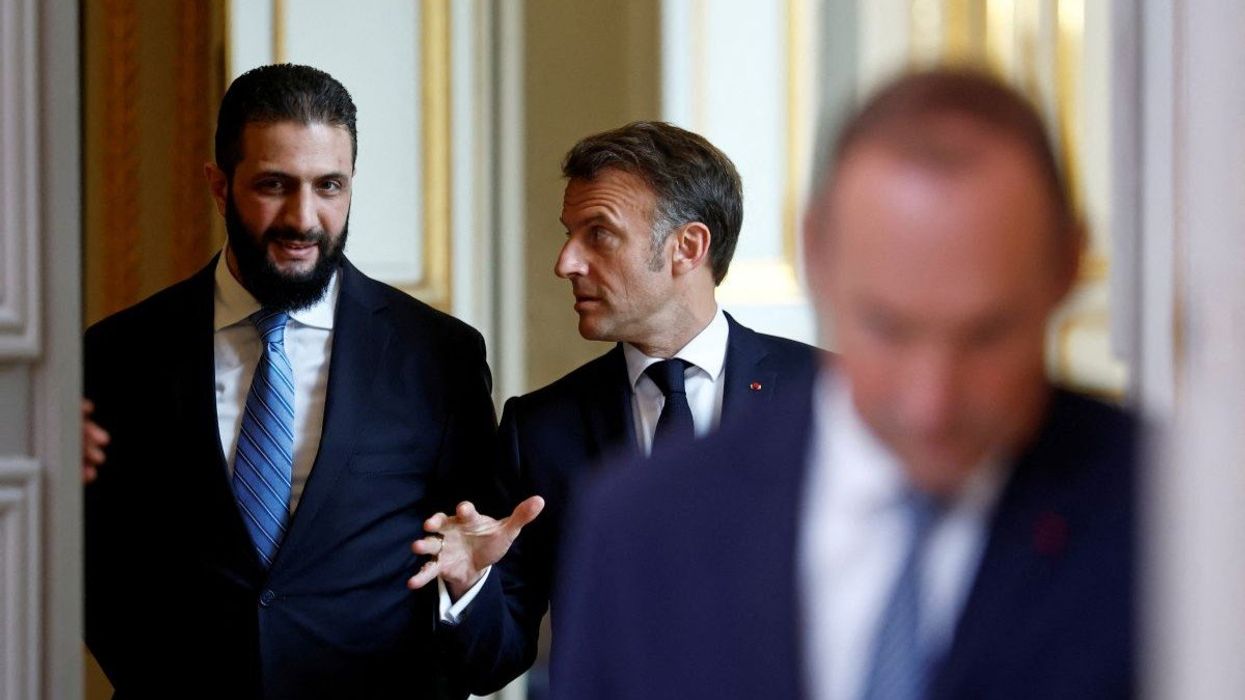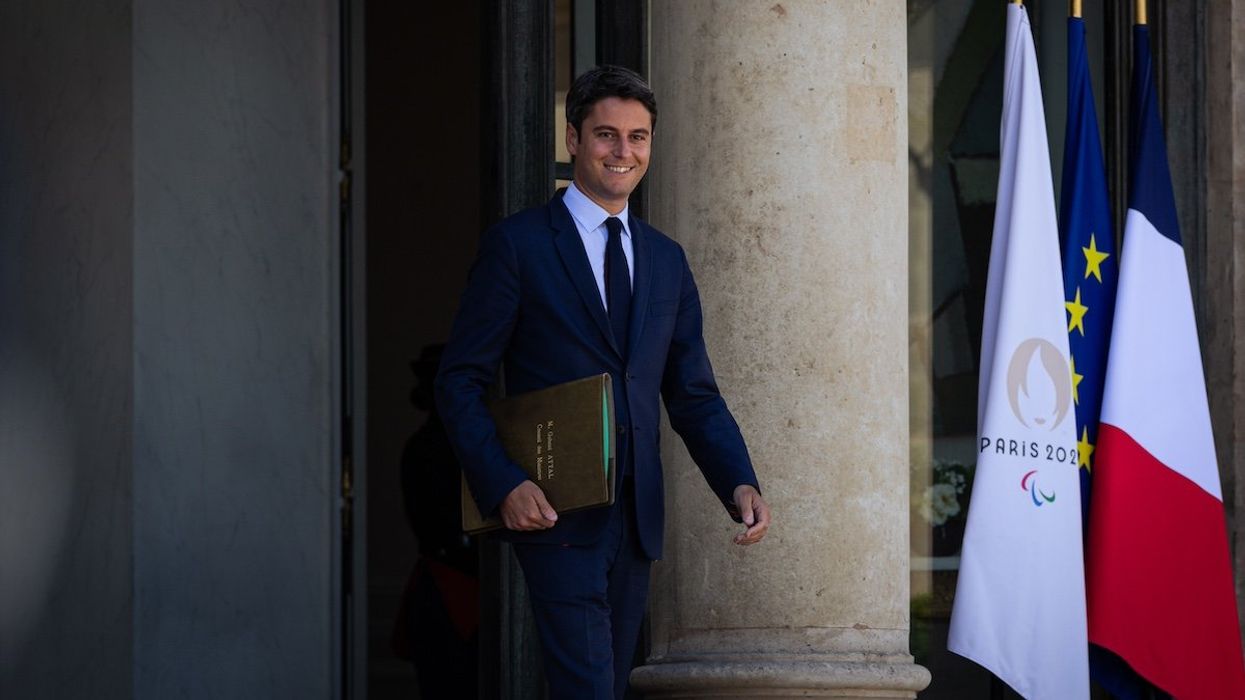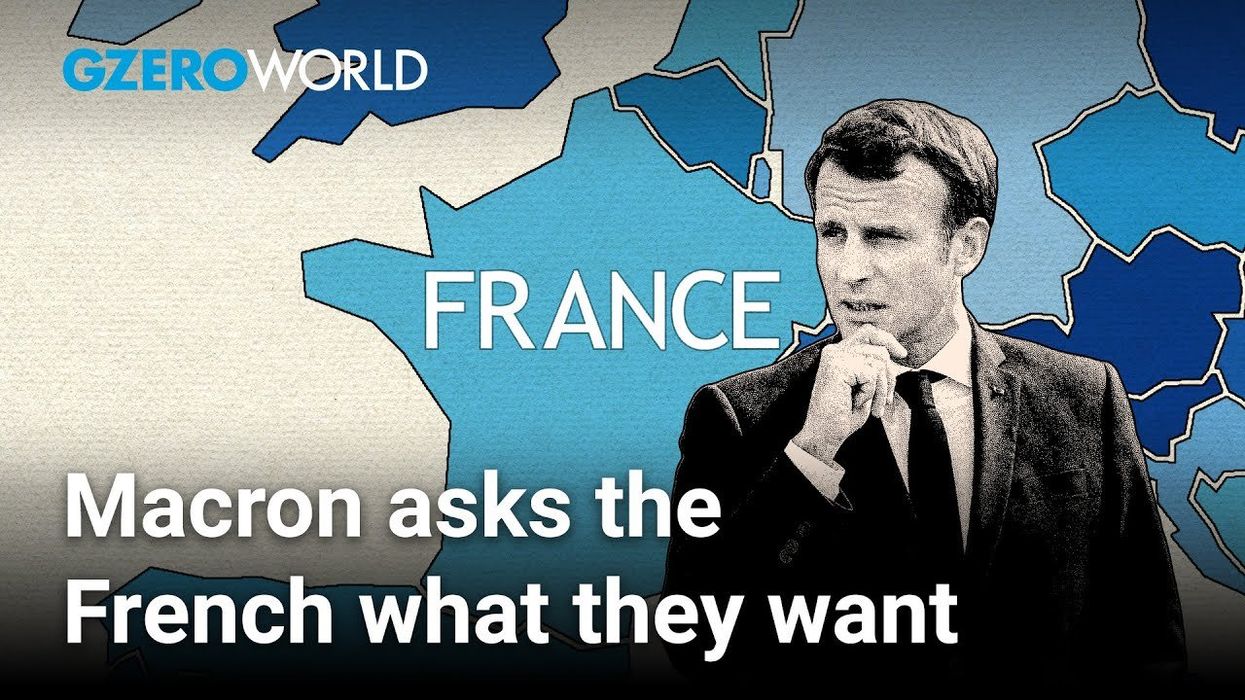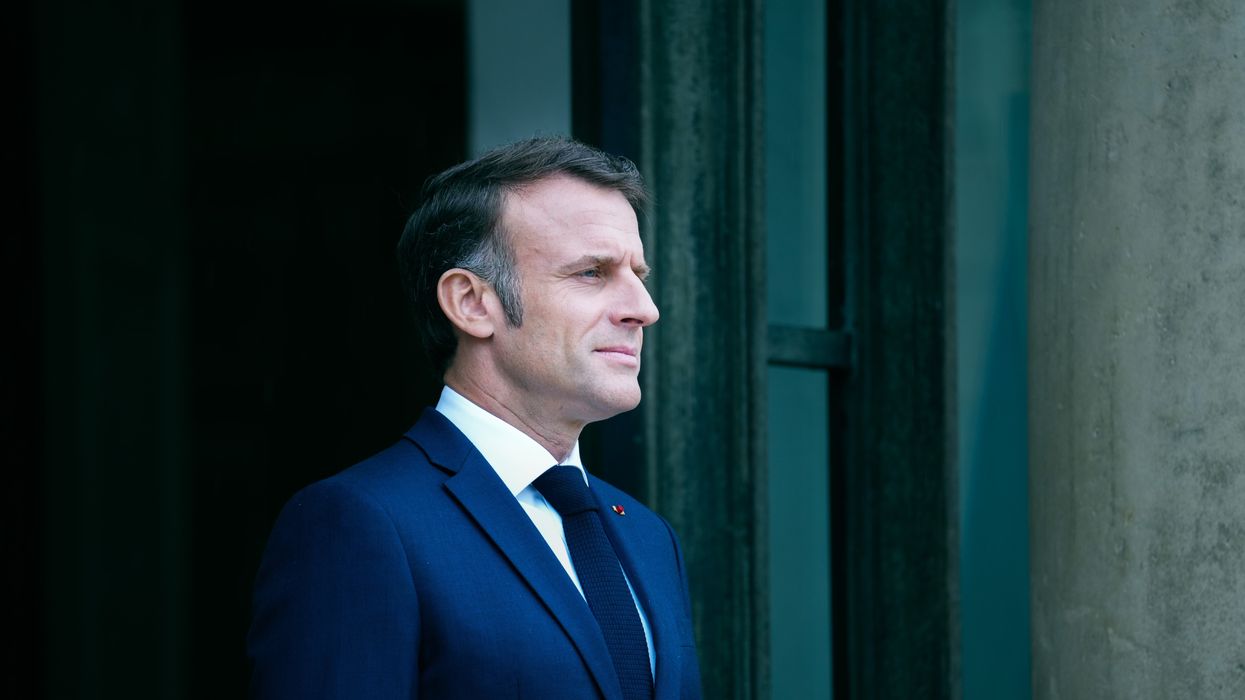What We're Watching
Syria’s president visits France, and chats (indirectly) with Israel
Syria’s interim president Ahmed al-Sharaa, the former jihadist whose forces overthrew the dictatorship of Bashar al-Assad last December, met on Wednesday with French President Emmanuel Macron. It was his first trip to Europe.
May 08, 2025










